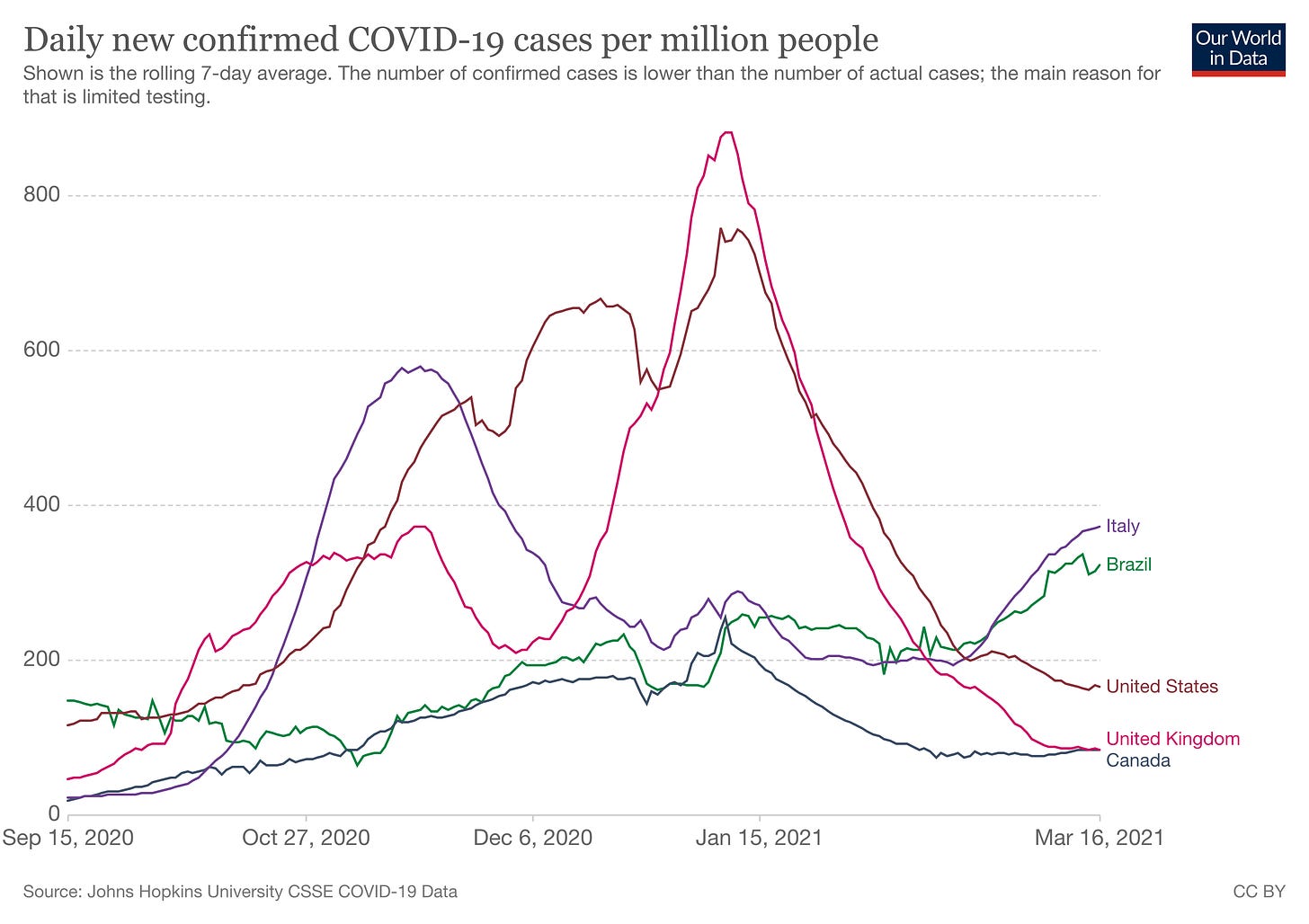Businesses advised on COVID-19 testing, funding aims to bolster public health departments
New infections continue in Texas and other states that dropped COVID-19 prevention measures, while vaccines show dramatic impact in "the real world," says Fauci
The COVID-19 outbreak across the United States continues to decline overall, but there are hot spots of concern, especially since at least one is associated with a troubling variant. Infection rates and other data point to concerns especially in Texas, Florida, and Alabama — three of the states that relaxed public health “non-pharmaceutical interventions” to prevent COVID-19 spread. While this may be no surprise, it is a challenge to otherwise encouraging news from other parts of the nation.
Drilling into the data a bit:
Texas is averaging more than 16,000 new cases a day, with a test positivity rate over 6% and just under 20% of residents receiving at least one vaccine dose so far. Most importantly, the rate of new infections is no longer declining.
California’s test positivity rate is below 3% and more than 21% of its residents have gotten at least one shot so far. Its new case rate is now around 7,000 a day, down from over 40,000 a month ago. However, more than half of California residents live in densely populated or other high-risk areas.
The United States continues to lead the world in death and disease, although Italy is facing a sharp upswing in new COVID-19 cases, as does Brazil.
The latest new guideline from the CDC explains when and how businesses should screen people for COVID-19, including types of tests and other screening measures, how to interpret them, and when they are useful. In communities with substantial or high COVID-19 transmission rates, the agency recommends that worksites implement at least weekly testing and other measures to protect against the spread of COVID-19.
Vaccines work: Vaccines have reduced the prevalence of COVID-19 infections 80% among people being screened before surgery, according to a Mayo Clinic study, White House top medical advisor Dr. Anthony Fauci reported at today’s White House COVID-19 briefing. He says this and other data from Israel and the United Kingdom indicate that the vaccinations are preventing COVID-19 in “the real world.”
The former president finally said it out loud where everyone could hear it. “I would recommend [the vaccine], and I would recommend it to a lot of people that don't want to get it, and a lot of those people voted for me, frankly," he said on FoxNews Tuesday.
A new guide on “How to talk about COVID-19 vaccines with friends and family” has these tips:
Listen to questions with empathy
Explore their concerns with open-ended questions (E.g., “How does that make you feel?” instead of “That’s silly.”)
Ask permission before sharing information (i.e., don’t push facts or other info on an unwilling person)
Help others find their own reasons to get vaccinated (e.g., share your reasons but don’t presume others have same motivation)
Help make the vaccination happen (such as by helping make an appointment)
The White House announced several major new initiatives, with funding:
$2.25 billion to support state and local health departments improve testing and other capabilities to help control COVID-19 and other public health risks, targeted at improving health in marginalized and underserved communities.
$150 million to help get monoclonal antibody infusion treatments to more people in rural and other underserved communities;
$10 billion to support COVID-19 testing in schools.
—
Side note: Politifact has compiled its “15 weirdest” COVID-19 fact checks.
Thank you for reading and subscribing. Please let me know what you think and how I can make this newsletter more useful.




